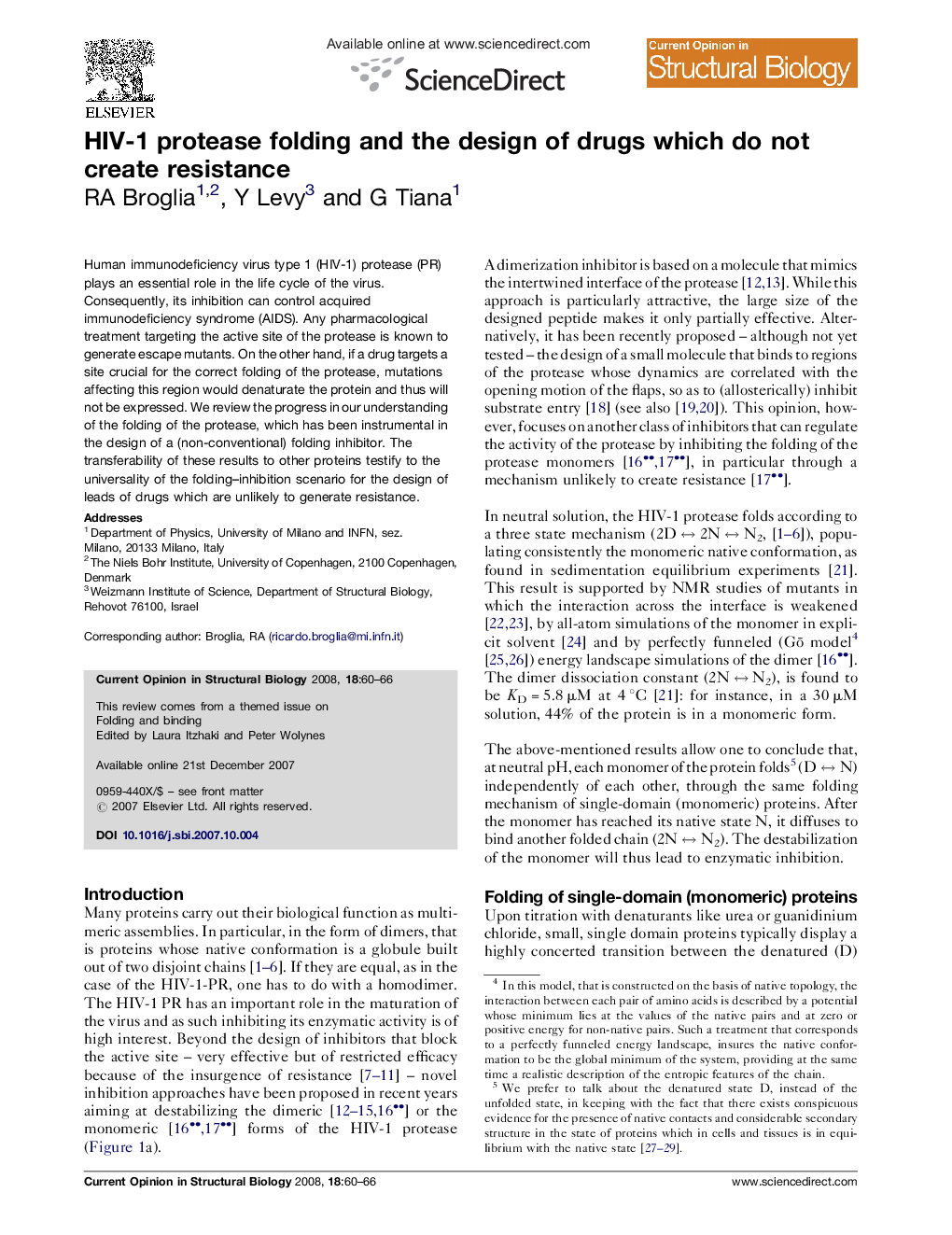| Article ID | Journal | Published Year | Pages | File Type |
|---|---|---|---|---|
| 1979553 | Current Opinion in Structural Biology | 2008 | 7 Pages |
Human immunodeficiency virus type 1 (HIV-1) protease (PR) plays an essential role in the life cycle of the virus. Consequently, its inhibition can control acquired immunodeficiency syndrome (AIDS). Any pharmacological treatment targeting the active site of the protease is known to generate escape mutants. On the other hand, if a drug targets a site crucial for the correct folding of the protease, mutations affecting this region would denaturate the protein and thus will not be expressed. We review the progress in our understanding of the folding of the protease, which has been instrumental in the design of a (non-conventional) folding inhibitor. The transferability of these results to other proteins testify to the universality of the folding–inhibition scenario for the design of leads of drugs which are unlikely to generate resistance.
